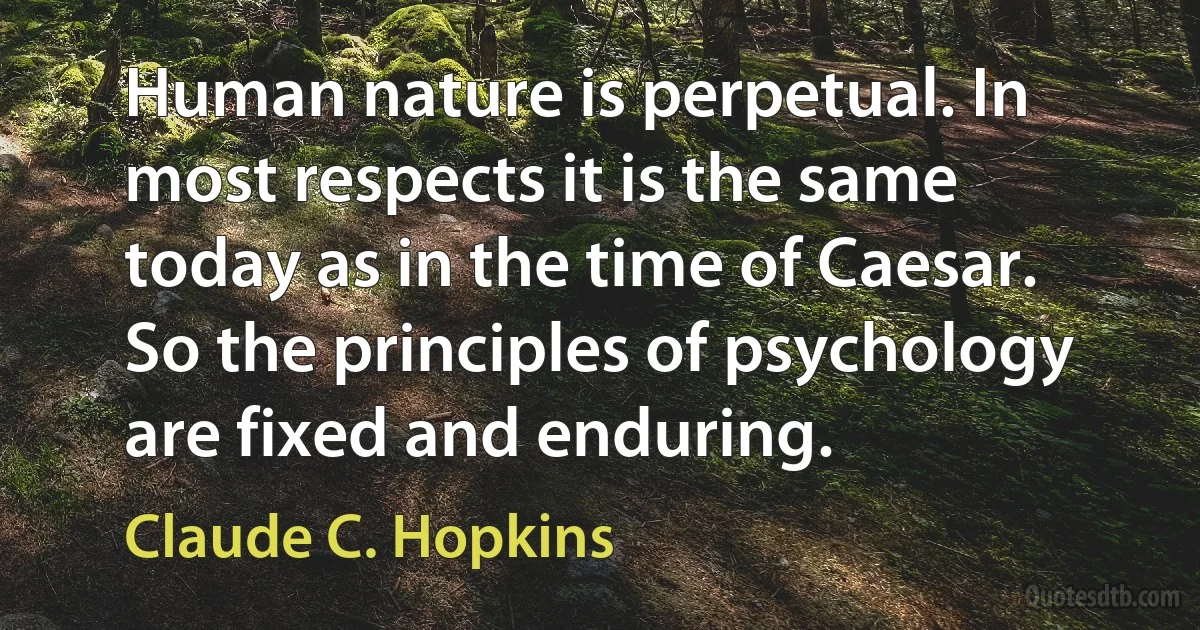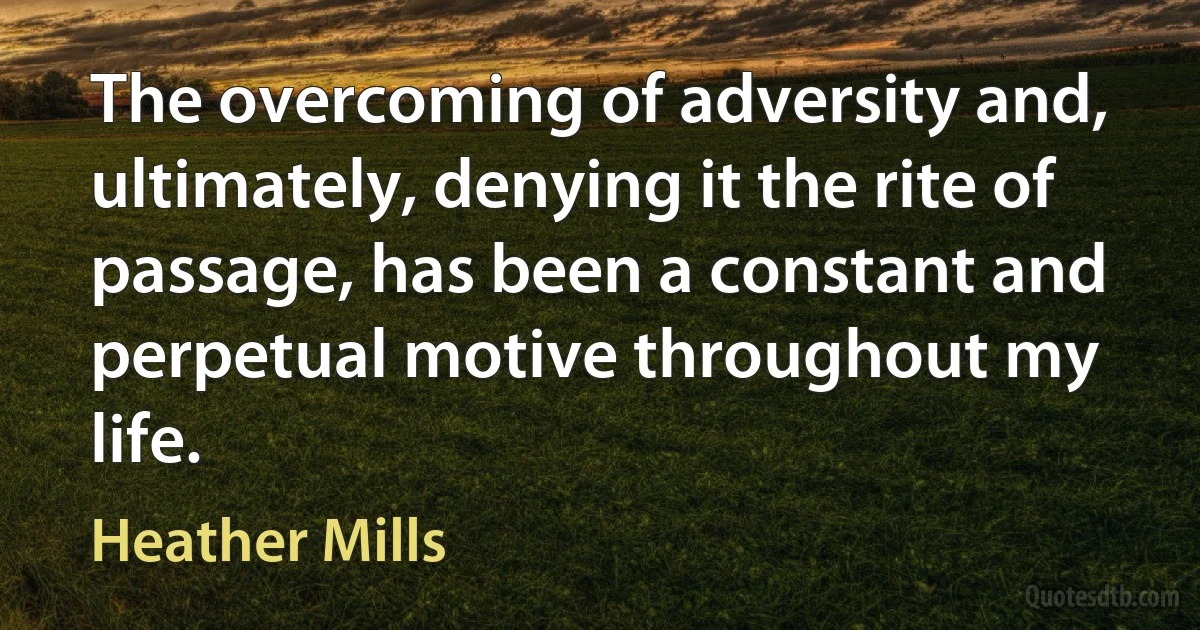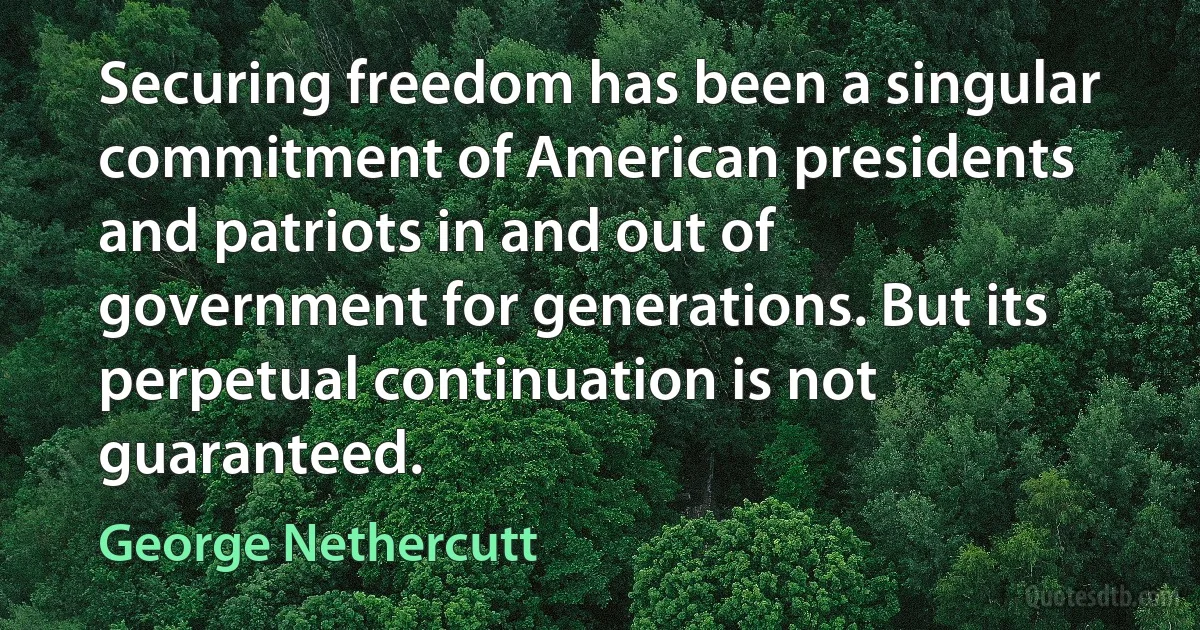Perpetual Quotes - page 11
Whereas, Slavery, throughout its entire existence in the United States is none other than a most barbarous, unprovoked, and unjustifiable War of one portion of its citizens upon another portion; the only conditions of which are perpetual imprisonment, and hopeless servitude or absolute extermination; in utter disregard and violation of those eternal and self-evident truths set forth in our Declaration of Independence.

John Brown
The Prophet is thus a primal force. His action affects the character of the general harmony, while he him self does not become a part of that harmony, but remains always a man apart, a narrow-minded extremist, zealous for his own ideal, and intolerant of every other. And since he cannot have all that he would, he is in a perpetual state of anger and grief; he remains all his life "a man of strife and a man of contention to the whole earth." [Jeremiah 15:10] Not only this: the other members of society, those many-sided dwarfs, creatures of the general harmony, cry out after him, "The Prophet is a fool, the spiritual man is mad" [Hosea 9:7]; and they look with lofty contempt on his narrowness and extremeness.

Ahad Ha'am
To unstable money are to be traced nearly all our economic troubles since 1918: the unemployment of the inter-war period; the over-employment and scarcity of labour since the Second World War; the labour unrest incidental to perpetual wage demands; the hardships and dislocation caused by the declining value of small savings, annuities and endowments; the vexation of continual price rises even for those whose incomes on the whole keep pace with them; the collapse of the prices of Government securities through distrust of the unit in which they are valued.

Ralph George Hawtrey
Core values = The organization's essential and enduring tenets – a small set of general guiding principles, not to be confused with specific cultural or operating practices, and not to be compromised for financial gain or short-term expediency.
Purpose = The organization's fundamental reasons for existence beyond simply making money – a perpetual guiding star on the horizon, not to be confused with specific goals or business strategies.

James C. Collins
Diversity of opinions on theoretical points is never dangerous to the party. There are for us no bounds to criticism, and however great our respect may be for the founders and pioneers of our party, we recognize no infallibility and no other authority than science, whose sphere is ever widening and continually proves what it previously held as truths to be errors; destroys the old decayed foundations and creates new ones; does not stand still for an instant; but in perpetual advance moves remorselessly over every dogmatic belief.

Wilhelm Liebknecht
The migratory movement is at once perpetual, partial and universal. It never ceases, it affects every people ... [and although] at a given moment it sets in motion only a small number of each population ... in fact there is never a moment of immobility for any people, because no migration remains isolated.

Eugene M. Kulischer
Collaboration of equal companions replaces the command of masters and the obedience of servants. The sense of duty, the devotion to the community, the praise or blame of the comrades according to efforts and achievements, as incentives take the place of fear for hunger and perpetual risk of losing the job. Instead of the passive utensils and victims of capital, the workers are now the self-reliant masters and organizers of production, exalted by the proud feeling of being active co-operators in the rise of a new humanity.

Antonie Pannekoek
Heaven and Earth exist for ever:
Mountains and rivers never change.
But herbs and trees in perpetual rotation
Are renovated and withered by the dews and frosts:
And Man the wise, Man the divine-
Shall he alone escape this law?
Fortuitously appearing for a moment in the World
He suddenly departs, never to return.

Tao Yuanming
Can humans exist without some people ruling and others being ruled? The founders of political science did not think so. "I put for a general inclination of mankind, a perpetual and restless desire for power after power, that ceaseth only in death," declared Thomas Hobbes. Because of this innate lust for power, Hobbes thought that life before (or after) the state was a "war of every man against every man"-"solitary, poor, nasty, brutish and short." Was Hobbes right? Do humans have an unquenchable desire for power that, in the absence of a strong ruler, inevitably leads to a war of all against all? To judge from surviving examples of bands and villages, for the greater part of prehistory our kind got along quite well without so much as a paramount chief, let alone the all-powerful English leviathan King and Mortal God, whom Hobbes believed was needed for maintaining law and order among his fractious countrymen.

Marvin Harris
So is civil society prepared for the future? Probably not. Most organisations have to live hand to mouth, juggling short-term funding and perpetual minor crises. Even the bigger ones rarely get much time to stand back and look at the bigger picture. Many are on a treadmill chasing after contracts and new funding.

Geoff Mulgan



